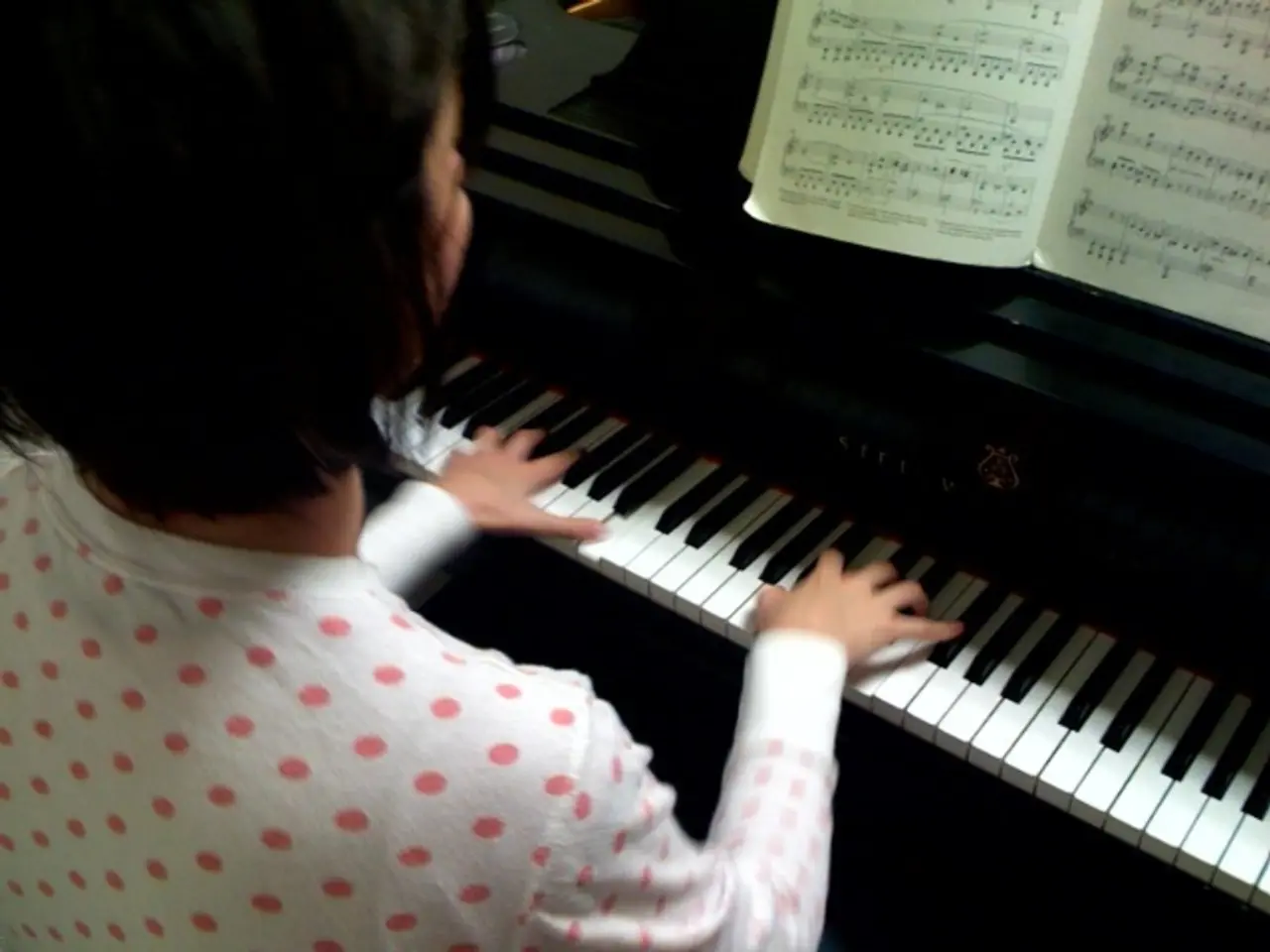Which syllabus offers a more advantageous learning experience between ABRSM and Trinity?
In the world of music education, two prominent names stand out: ABRSM and Trinity College London. Both organisations offer graduate diplomas in various performing arts, English teaching, and music, with a global presence in over 70 countries. However, when it comes to piano exams, these two institutions have distinct approaches.
Scales and Arpeggios
Both ABRSM and Trinity require graded scales and arpeggios, but their syllabuses may differ in technical demands, range, and progression. ABRSM traditionally emphasises a systematic approach to scales, arpeggios, and technical work aligned with classical piano technique. Trinity, on the other hand, integrates these technical exercises with a wider variety of musical styles, reflecting its broader syllabus diversity.
Repertoire
ABRSM's repertoire is rooted in classical tradition, offering a wide range of pieces from different periods. Trinity, however, offers a more eclectic repertoire, including a significant number of pieces by contemporary composers and more options for students interested in jazz, pop, and other modern music styles.
Supporting Tests
Both boards include supporting tests such as aural skills and sight-reading, but their format and emphasis can differ. ABRSM has a strong emphasis on aural skills integrated with traditional classical training. Trinity’s supporting tests may incorporate broader musical literacy and digital theory components, notably with their recent introduction of Digital Theory exams.
Digital Resources
ABRSM has recently expanded digital offerings, including digital-only diplomas and online exam formats. Trinity, too, has advanced in digital theory exams and uses technology to enhance exam accessibility and experience.
In summary, ABRSM focuses on a systematic approach to scales, arpeggios, and technical work, while Trinity integrates these exercises with a wider variety of musical styles. ABRSM's repertoire is more classical, while Trinity offers a more eclectic range. ABRSM has a strong emphasis on aural skills, while Trinity's supporting tests may incorporate broader musical literacy and digital theory components. Lastly, ABRSM has recently expanded its digital offerings, while Trinity has introduced innovative Digital Theory exams.
| Aspect | ABRSM | Trinity | |---------------------|---------------------------------------------|-------------------------------------------| | Scales & Arpeggios | Systematic, classical technique focus | Diverse styles integrated with technical exercises | | Repertoire | Classical tradition, graded by historical style | More eclectic, includes contemporary and popular styles | | Supporting Tests | Strong classical aural training, sight-reading | Broader musical literacy, digital theory exams | | Digital Resources | Digital diplomas, online exam formats | Innovative Digital Theory exams, video submissions |
For detailed syllabi comparison, consultation of the current official ABRSM and Trinity syllabus documents is recommended.
[1] Information drawn from recent discussions and reviews of grade exam syllabuses and digital innovation in piano education.
- A music teacher might suggest a beginner explore both ABRSM and Trinity College London for their music education, as both offer diverse coursework in various performing arts and music, with a global reach.
- When learning music theory, a piano student may find that ABRSM emphasizes a systematic approach to scales, arpeggios, and technique, while Trinity integrates these exercises with a more varied selection of musical styles.
- A composer seeking to have their work featured in piano exams may find more opportunities with Trinity College London, as their repertoire includes a wider range of contemporary and modern music styles.
- For a music enthusiast who also values education-and-self-development, both boards offer supportive tests in aural skills and sight reading, with ABRSM focusing on traditional classical training and Trinity incorporating broader musical literacy and digital theory.
- As part of their education-and-self-development, a music lover might seek out piano lessons from a teacher who is familiar with the distinct syllabi and techniques used by ABRSM and Trinity College London, to ensure meaningful entertainment and continued growth in their musical journey.




